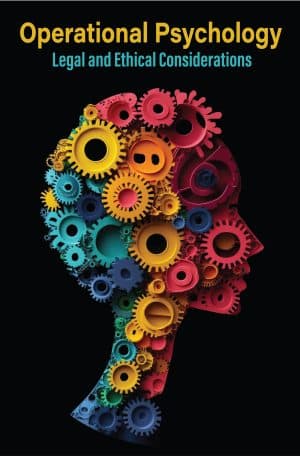Executive Functioning in Adults
Adina Soclof, MS, CCC-SLP; Leo Christie, PhD, LMFT
$39.00
 Introductory
Introductory
 Online
Online
Course Abstract
Executive Functioning in Adults is a 3-hour online continuing education (CE/CEU) course that provides strategies to help adults overcome executive functioning deficits.
Executive functioning (EF) is an umbrella term for the various complex cognitive processes that are responsible for cognitive control of thoughts and actions that are necessary to maintain goal-directed behavior in pursuit of the attainment of future goals. Executive skills allow one to organize their thinking and behavior over extended periods of time and override immediate demands in favor of longer-term goals. These skills are critical in planning and organizing activities, sustaining attention, and persisting until a task is complete. Individuals who do not have well developed executive functioning skills tend to have difficulty starting and attending to tasks, redirecting themselves when a plan is not working, and exercising emotional control and flexibility.
This course is divided into four sections:
- Begins with illustrations of what executive functioning skills are and the specific abilities they involve and will also discuss the causes and various symptoms of executive functioning deficits.
- Includes descriptions of, and strategies for, the development of the twelve executive functioning skills.
- Provides an overview of the self-esteem issues that face adults with executive functioning skill deficits, and general approaches clinicians can use to address such issues during treatment.
- Presents a wide variety of tips and resources that can be used in preventing the adverse effects that accompany deficits in executive functioning.
Course #31-32 | 2021 | 63 pages | 20 posttest questions
Learning Objectives
- Name three possible causes of executive functioning deficits
- Summarize each of the twelve executive functioning skills
- Describe three strategies that can help build planning and organizational skills
- Illustrate four ways in which modifying the environment can support clients with executive functioning deficits
- List five general strategies for empowering clients with executive functioning difficulties
- Name eight supports that can help prevent the harmful effects of executive functioning deficits
Course Directions
This online course provides instant access to the course materials (PDF download) and CE test. The course is text-based (reading) and the CE test is open-book (you can print the test to mark your answers on it while reading the course document).
Successful completion of this course involves passing an online test (80% required, 3 chances to take) and we ask that you also complete a brief course evaluation.
About the Author(s)
Adina Soclof, MS, CCC-SLP : Find out More
Adina Soclof, MS, CCC-SLP, is a Parent Educator, Professional Development Instructor and Speech-Language Pathologist working with children in a school setting. She received her B.A. in history from Queens College and her M.S. in communication sciences from Hunter College. Adina is the founder of ParentingSimply.com. She delivers parenting classes as well as professional development workshops for Speech-Language Pathologists, teachers and other health professionals. Adina is available for speaking engagements and can be reached at [email protected].
Disclosure
Financial: Ms. Soclof receives royalty payments from Professional Development Resources on sales of her courses.
Nonfinancial: No relevant nonfinancial relationship exists.
Leo Christie, PhD, LMFT : Find out More
Leo Christie, PhD, LMFT, was a Florida-licensed Marriage and Family Therapist with a doctorate in Marriage and Family Therapy from Florida State University. Past President of the Florida Council on Family Relations, Dr. Christie has more than 20 years’ experience in private practice with a specialty in child behavior disorders and as an instructor for over 500 live continuing education seminars for healthcare professionals. He is the founder of Professional Development Resources; a nonprofit corporation whose mission is to deliver continuing education credit courses to healthcare professionals throughout the United States.
Disclosure
Financial: Receives author compensation from Professional Development Resources, Inc.
Nonfinancial: No relevant nonfinancial relationships exist.
CE Information
Counseling
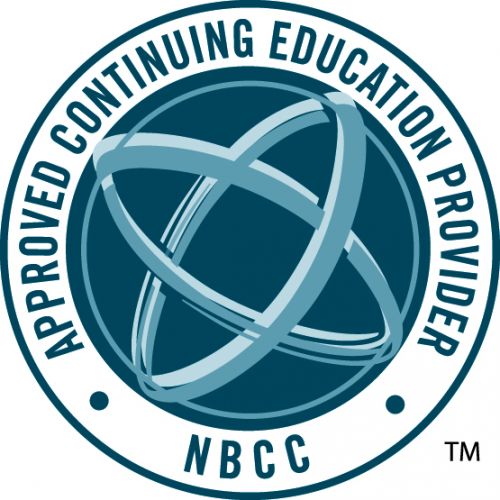
Professional Development Resources (PDR) has been approved by the National Board for Certified Counselors (NBCC) as an Approved Continuing Education Provider, ACEP No. 5590. Programs that do not qualify for NBCC credit are clearly identified. PDR is solely responsible for all aspects of the programs.
Professional Development Resources is CE Broker compliant (#50-1635 - all courses are reported within two business days of completion). Professional Development Resources, Inc. is recognized by the New York State Education Department’s State Board for Mental Health Practitioners as an approved provider of continuing education for licensed mental health counselors (#MHC-0135 - Note: New York counselors will receive 3 continuing education credits for completing this self-study course).
Marriage and Family Therapy
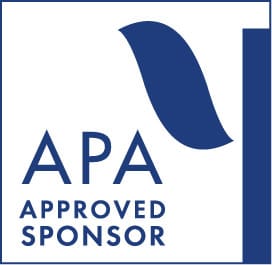
Professional Development Resources is approved by the American Psychological Association (APA) to sponsor continuing education for psychologists. Professional Development Resources maintains responsibility for this program and its content. Professional Development Resources is also approved by the National Board of Certified Counselors (NBCC ACEP #5590); the Association of Social Work Boards (ASWB #1046, ACE Program); the New York State Education Department's State Board for Mental Health Practitioners as an approved provider of continuing education for licensed marriage and family therapists (#MFT-0100 - Note: New York MFTs will receive 3 continuing education credit(s) for completing this self-study course); the Texas Board of Examiners of Marriage and Family Therapists (#114); and is CE Broker compliant (#50-1635 - all courses are reported within two business days of completion).
Nutrition and Dietetics
Professional Development Resources is a CPE Accredited Provider with the Commission on Dietetic Registration (CDR #PR001). CPE accreditation does not constitute endorsement by CDR of provider programs or materials. Feedback for this activity can be sent directly to CDR. Professional Development Resources is also a provider with the Florida Council of Dietetics and Nutrition (#50-1635) and is CE Broker compliant (#50-1635) (all courses are reported within two business days of completion).
Psychology

Professional Development Resources is approved by the American Psychological Association (APA) to sponsor continuing education for psychologists. Professional Development Resources maintains responsibility for this program and its content.
Professional Development Resources is CE Broker compliant (#50-1635 - all courses are reported within two business days of completion). Professional Development Resources, Inc. is recognized by the New York State Education Department’s State Board for Psychology as an approved provider of continuing education for licensed psychologists (#PSY-0145).
School Psychology

Professional Development Resources is approved by the American Psychological Association (APA) to sponsor continuing education for psychologists. Professional Development Resources maintains responsibility for this program and its content.
Professional Development Resources is CE Broker compliant (#50-1635 - all courses are reported within two business days of completion). Professional Development Resources, Inc. is recognized by the New York State Education Department’s State Board for Psychology as an approved provider of continuing education for licensed psychologists (#PSY-0145).
Speech-Language Pathology
Introductory Level | 0.3 ASHA CEUs | ASHA credit is available until 6/30/2026. ASHA CEUs are awarded by the ASHA CE Registry upon receipt of the monthly completion report from the ASHA Approved CE Provider (#AAUM5175). Please note that the date that appears on ASHA transcripts is the last day of the month in which the course was completed.
Professional Development Resources is CE Broker compliant (#50-1635 - all courses are reported within two business days of completion).
ASHA CE Provider approval and use of the Brand Block does not imply endorsement of course content, specific products, or clinical procedures.
Social Work
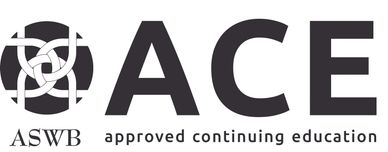
Professional Development Resources, #1046, is approved as an ACE provider to offer social work continuing education by the Association of Social Work Boards (ASWB) Approved Continuing Education (ACE) program. Regulatory boards are the final authority on courses accepted for continuing education credit. ACE provider approval period: 6/12/2025 - 6/12/2028. Social workers completing this course receive 3 clinical continuing education credits. ACE format: Reading-based asynchronous distance learning.
Professional Development Resources is CE Broker compliant (#50-1635 - all courses are reported within two business days of completion). Professional Development Resources, Inc. is recognized by the New York State Education Department's State Board for Social Work as an approved provider of continuing education for licensed social workers (#SW-0664 - Note: New York social workers will receive 3 continuing education credit(s) for completing this self-study course). Professional Development Resources is also approved by the Texas State Board of Social Worker Examiners (#5678).
Teaching
Professional Development Resources is approved by the American Psychological Association (APA) to sponsor continuing education for psychologists. Professional Development Resources maintains responsibility for all programs and content. Professional Development Resources is also approved by the National Board of Certified Counselors (NBCC ACEP #5590); the Association of Social Work Boards (ASWB Provider #1046, ACE Program); the Continuing Education Board of the American Speech-Language-Hearing Association (ASHA Provider #AAUM); the American Occupational Therapy Association (AOTA Provider #3159); the Commission on Dietetic Registration (CDR Prior Approval Program); the New York State Education Department’s State Board for Psychology as an approved provider of continuing education for licensed psychologists (#PSY-0145), State Board for Mental Health Practitioners as an approved provider of continuing education for licensed mental health counselors (#MHC-0135) and marriage and family therapists (#MFT-0100), and the State Board for Social Workers as an approved provider of continuing education for licensed social workers (#SW-0664); the Texas Board of Examiners of Marriage and Family Therapists (#114) and State Board of Social Worker Examiners (#5678); and is CE Broker compliant (#50-1635 - all courses are reported within two business days of completion).
Customer Testimonials
Great information and ideas to implement.
This was a very informative course and the case examples helped "bring the material to life".
This course was very informative, and the examples were very helpful.
Photos demonstrate cultural responsiveness. They also add visual emphasis for contents of a section. Practical and immediate strategies that therapists can use with their patients/clients. Great reference list - very thorough. Technology apps were wonderful, I will use some of these myself!
Great course on executive functioning in adults! I've taken courses on executive functioning in children, but this was very interesting and explained how those skills carry-over into adulthood. I like how the information was presented and it provided many examples and practical techniques to teach clients. Also, the information on the technology apps is really great! There's an app for every kind of executive function and learning style. Thank you for offering such a useful and helpful course!
More Testimonials
I have a 29 yera old son with significant executive function difficulties (onset revealed in early 20's). I checked the boxes of his reality with each section I read! I gave him a copy of this and am hopeful that he will read it and then accept some kind of therapy or coaching! Thank you.
I think the course will be beneficial for myself as well as my therapy practice.
This course was organized and informative.
Really excellent. Well-written, very clear concepts, good suggestions for working with clients.
Very useful with the addition of app and websites.
Loved the examples and clear strategies.
I found this to be a very good course. There is much here that I can use in my therapy sessions as well as in my own home. Thank you.
Very informative course. I appreciated the examples and the many suggestions.
Excellent course which was well-written, very clear, and provided lots of appropriate strategies.
A great deal of helpful information and a review of things I've used in the past - good refresher. I will use some of these strategies on family members!!
I learned a lot and have a better understanding of how to approach clients and their famililies.
Excellent CEU! This course was full of information along with practical tips, lists, and apps to use with clients who struggle with executive functioning. I love the idea of making a handout for each of the skills. Thank you!
I found this course to be more helpful than other courses I have taken. The strategy sections were perfect and gave me a lot of new ideas I hadn't thought of. Thank you for providing this course.
Excellent presentation, very easy to navigate and very convenient. The program was in depth and relevant.
Very interesting course. I plan to use these ideas in my practice, particularly with clients anxious about early signs of cognitive decline.
Easy to follow, clear, user friendly. Thanks!
Excellent course. Relevant. Very well-written. Gave useful techniques.
I plan on using many of the techniques personally as well as with clients.
Excellent examples and resources. Very informative!
As an adult who struggles with Executive Functioning this was very beneficial for me as well as my son. I also appreciated the Executive Functioning in Children Training. I hope that the concepts of Executive Function will be discussed more to the point it becomes as commonly discussed as ADHD, as it seems many of these treatments or modifications are very do-able treatment options. Thank you for sharing this quality, useful and eye-opening information! I imagine this will create quite a change in me and my family over time!
Reinforced my knowledge in this area and reiterated strategies that I have used with my clients. Nicely organized and wealth of information. Thank you.
Great examples and clear information.
Thank you! So much that I read on executive functioning only focuses on children/adolescents with ADHD, but this course had so many useful strategies I can use with my adult clients who not only have ADHD but also have TBIs and impulse-control disorders.
I found this explication of material quite affirming . . . both for my own personal growth and for work with clients.
I found this to be a very good course. Thank you.
I plan to use some techniques and share with family.
Very informative course. I appreciated the examples and the many suggestions.
Excellent course which was well-written, very clear and provided lots of appropriate strategies.
Full of very helpful and practical information!
This was a very helpful CEU as it has given me a wider playbook for my clients who are struggling their ADHD/ADD. I love how each executive function was broken down.
Good content and well-presented.
As always, the course was very thorough and complete. It will help me in my own executive functioning skills as well as with those I counsel. Thank you for your excellent courses.
The course was very well organized, very clearly laid out, and provided a lot of practical ways to use the information provided.
A well-organized and very educational contribution. Thank you!
I've done a couple of courses about EF in children, but was interested in this one because of the focus on adults. (To be honest, more for personal reasons than professional!) I found the information helpful, and the suggestions and apps seem relevant. I didn't print the information out, but plan to for future reference.
As someone that does not have executive functioning issues, it was eye-opening to see the different areas affected and the strategies used to help with each. I've already made one handout and expect to use the websites regularly.
The recommendations on how to deal with executive functioning issues were very thorough and helpful. I will include them in my work with parents who are trying to manage their interactions with their adult children who have executive functioning issues.
This course was very useful in identifying ways to address very specific executive functioning deficits. It provided great examples and resources as well to support work with clients who struggle with executive functioning.
It's a great course that was very helpful for me personally and for me as a Speech therapist practicing in an SNF. A special thank you to you for providing me with plenty of helpful websites that I hope will aid in my work.
Super helpful course for my work with graduate student clinicians, many of whom struggle with executive functioning. Of course this is also very applicable to those older students and adults on the caseload who require objectives and intervention in the realm of executive function.
Outstanding course. Highly recommend
Excellent detail and examples. This will be very useful in my work with our clients with epilepsy, many of whom have impairments in memory areas and/or executive functioning.
Great summary of a lot of diveres material!
Great CEU! Lots of specific suggestions to choose from to take into my next therapy session and discuss with clients.
Organized and well-sequenced presentation. The authors do practice what they preach!
- ADHD
- Adults
- Alternative Medicine
- Alzheimers & Aging
- Animal-Assisted Therapy
- Autism
- Behavior Therapy
- Child & Adolescent
- Closeout
- Communication
- Couples-Family-Parenting
- Cultural Diversity
- Depression & Anxiety
- Domestic Violence
- Ethics & Risk Management
- Gender Identity
- HIV-AIDS
- Human Trafficking
- Laws & Rules
- Medical Errors
- Mindfulness & Yoga
- National Psychologist
- Nutrition & Fitness
- Psychotherapy
- Sexuality
- Substance Abuse
- Suicide
- Supervision
- Trauma & PTSD
Related products
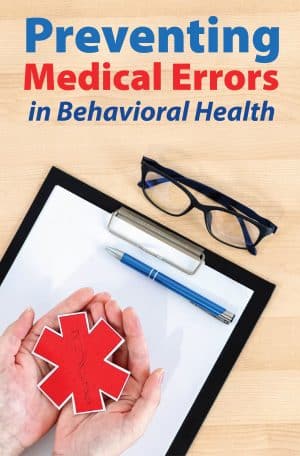
Preventing Medical Errors in Behavioral Health
 Learning Level : Intermediate
Learning Level : Intermediate
 Online
Online

Domestic Violence: Child Abuse and Intimate Partner Violence
 Introductory
Introductory
 Online
Online

